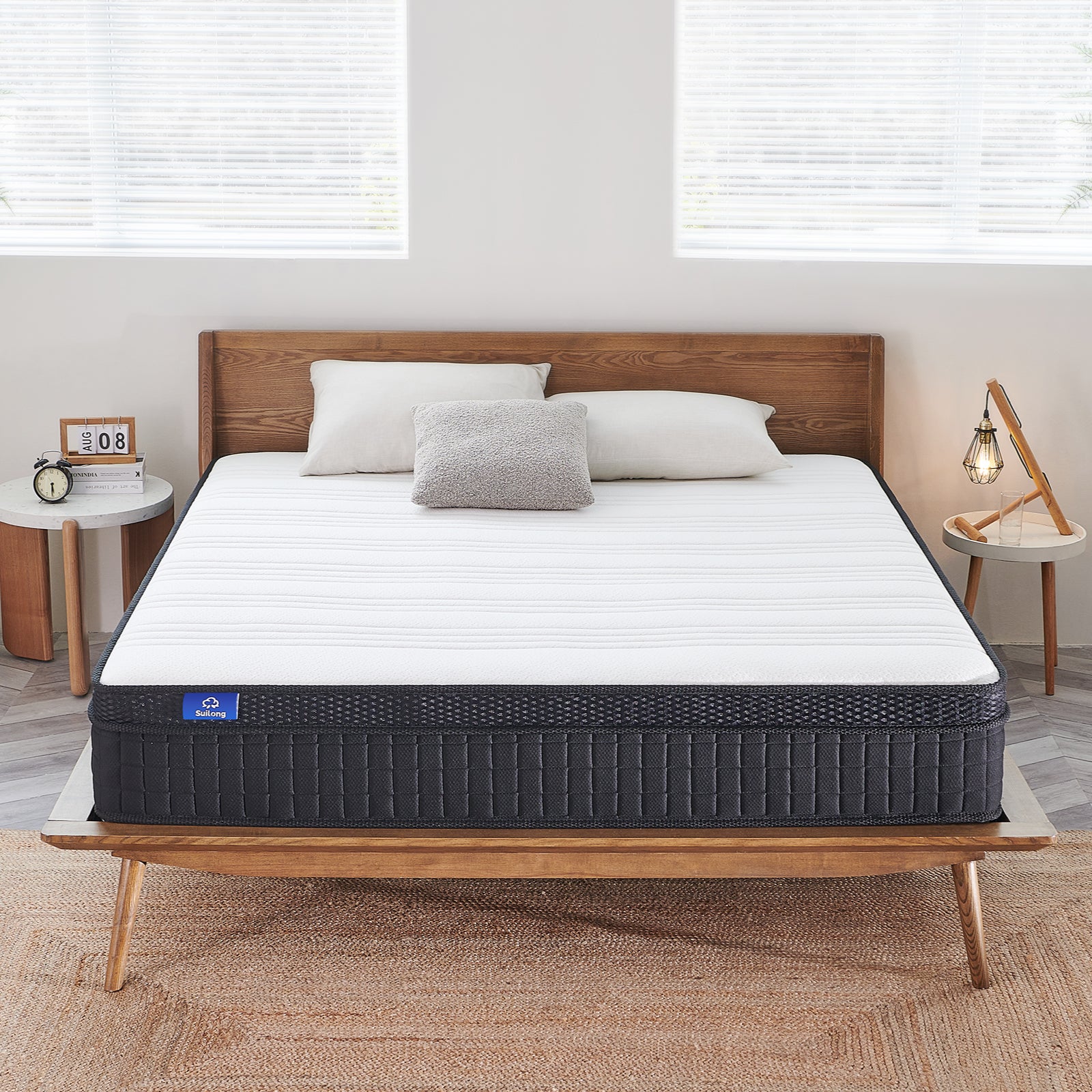The Top 8 Causes of Insomnia and Strategies to Address Them

Unlock the secrets to a restful night's sleep! Dive into this comprehensive guide where we decode the top 9 causes of insomnia and offer actionable Say goodbye to counting sheep!
1. Stress and Insomnia: Mind Spa for Stress Release
How to understand the relationship between stress and insomnia?
- Life stress produces cortisol (a stress hormone) that interferes with your sleep cycle.
- Overwork and constant family responsibilities often lead to emotional stress, which in turn affects the quality of your sleep.
Specific solutions
- Try progressive muscle relaxation, which involves loosening your muscles one by one from head to toe.
- Regularly engage in simple exercise, such as walking or swimming, to help reduce cortisol.
Course of action: Starting tonight, allocate some time to practice progressive muscle relaxation or simple exercise.

2. The effects of irregular sleep: Regular routine and regular bedtime
The biological clock and insomnia
- Your biological clock is responsible for controlling your sleep-wake cycle, and an irregular routine can throw it out of whack.
- Night owls are more likely to suffer from insomnia.
The solution
- Create a regular schedule.
- Avoid using electronic devices close to bedtime, as blue light can interfere with your biological clock.
3. Lifestyle and Insomnia: Eat Healthy, Sleep Well
Diet and insomnia
- High-sugar foods and caffeine can increase your heart rate and lead to insomnia.
- Studies have shown that insufficient intake of calcium and magnesium may lead to reduced sleep quality.
Change your approach
- Add foods with magnesium and calcium to your dinner, such as leafy greens and nuts.
- Try drinking herbal teas that help you sleep, such as chamomile tea.
Course of action: Start planning a more balanced and nutrient-dense diet tomorrow.
4. Insomnia caused by psychological factors: the mind determines everything
Effects of psychological state
- Chronic anxiety and depression can lead to insomnia.
- Certain psychological factors such as overthinking and worrying about the future can also affect sleep.
Suggestions for improvement
- Undergo cognitive behavioural therapy to better manage your emotions and behaviour.
- Try using positive thinking meditation as a form of self-regulation.
Course of action: If you have been suffering from psychological stress for a long time, it is advisable to seek help from a professional psychologist.
5. Impact of physical health conditions: Two uses for one body
Physical factors and insomnia
- Chronic pain or breathing problems can seriously affect your sleep.
- Other factors such as excessive alcohol consumption and smoking can also lead to poor sleep quality.
The solution
- Adjust your sleep environment to ensure it is comfortable and noise-free.
- Try using mild pain relievers or over-the-counter sleep aids.
Course of action: Always seek medical attention when experiencing persistent discomfort.

6. Drug Use and Insomnia: To Medicate or Not to Medicate?
The relationship between medications and insomnia
- Certain medications, especially those with stimulant ingredients, may cause insomnia.
- Antidepressants and some high blood pressure medications may also cause insomnia.
Recommendations
- Before starting a new medication, discuss its possible side effects with your doctor.
- Gradually reduce the dose of the medication, but only under the supervision of your doctor.
Course of action: Always consult your doctor if you suspect that a medication is causing insomnia.
7. Nervous system disorders and insomnia: Everything will be fine if the nerves are not tense
Nervous system and insomnia
- Neurological disorders such as Parkinson's disease and multiple sclerosis can affect sleep.
- These disorders may cause periodic leg movements, which can affect sleep.
The solution.
- Use neuromodulators or anticonvulsant medications to relieve insomnia symptoms.
- In severe cases, neurostimulation may be considered.
Course of action: It is important to seek professional medical advice as soon as possible if you are experiencing any of the associated symptoms.

8. Special circumstances: age and pregnancy
Age and Insomnia
- Older people are prone to insomnia due to changes in hormone levels and the pace of life.
- Children and adolescents may also suffer from insomnia due to school stress and an unstable biological clock.
Pregnancy and Insomnia
- Fluctuating hormone levels and physical changes in the body can lead to insomnia.
- Weight gain and foetal activity can also affect sleep.
Course of action: Adapt to the different stages of life and discuss possible solutions with your doctor.
Sleep should be a sanctuary, not a struggle. With this definitive guide to tackling the root causes of insomnia, you're one step closer to dreamland. Start implementing these tips tonight for a better tomorrow!
FAQs
Q: What are the most common causes of insomnia?
A: The most common causes of insomnia include stress, irregular sleep schedules, lifestyle choices, mental health disorders, and physical illness. Medications and specific sleep disorders also play a role.
Q: Are there any natural remedies for insomnia?
A: Yes, some natural remedies include herbal teas like chamomile or valerian root, as well as techniques like meditation, deep-breathing exercises, and maintaining a consistent sleep schedule.
Q: How does age affect insomnia?
A: Age can have a significant impact on sleep quality. Elderly individuals may experience changes in hormone levels and sleep patterns, while children and teenagers might suffer from insomnia due to academic pressures and hormonal changes.
Q: Can medications cause insomnia?
A: Absolutely. Certain medications like antidepressants, blood pressure medication, and corticosteroids can interfere with sleep. Always consult your doctor if you experience sleep problems while taking medication.
Q: Does Suilong offer any mattresses that help with insomnia?
A: Yes, Suilong specializes in ergonomic mattresses designed to provide a scientifically optimized sleep environment. Our products have undergone rigorous quality testing and are certified by ISO9001 and SGS quality management systems.
Read More:
https://suilong.org/blogs/blogs/a-full-breakdown-of-bed-frame-options-for-hybrid-mattresses
https://suilong.org/blogs/blogs/full-vs-queen-mattress
https://suilong.org/blogs/blogs/how-to-decide-the-thickness-of-the-spring-mattress-to-buy
https://suilong.org/blogs/blogs/unlocking-the-role-of-bed-slats-support-and-comfort-explained
https://suilong.org/blogs/blogs/queen-vs-full-mattresses
-
Posted in
Lifestyle, Sleep Experts, sleep health, Sleep Tips
















